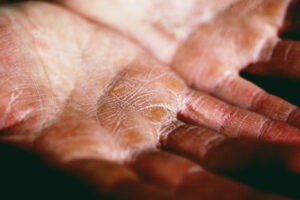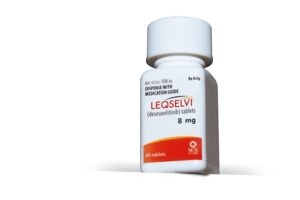LEO Pharma has received a positive opinion from the European Medicines Agency's (EMA) Committee for Medicinal Products for Human Use (CHMP) recommending the approval for Anzupgo (delgocitinib cream) for adults with moderate to severe chronic hand eczema (CHE).

Chronic hand eczema is an inflammatory skin condition characterised by symptoms such as itching and pain. Credit: andreas160578 from Pixabay.
Subscribe to our email newsletter
This treatment is intended for patients for whom topical corticosteroids are either not adequate or suitable.
An investigational topical pan-JAK inhibitor, delgocitinib cream works by inhibiting the JAK-STAT signalling pathway, which is crucial in the pathogenesis of CHE.
Currently, no other topical treatments are specifically approved for this patient group.
The CHMP’s positive opinion is based on results from two Phase III trials, DELTA 1 and DELTA 2, which assessed the safety and efficacy of delgocitinib cream compared to a cream vehicle.
The primary goal of the randomised, double-blind, vehicle-controlled, multicentre trials was to assess the efficacy of twice-daily applications of the cream compared to the cream vehicle in treating adults with moderate to severe CHE.
These trials achieved their primary and secondary endpoints.
Participants who completed these 16-week trials were offered to join the 36-week DELTA 3 open-label extension trial, which demonstrated a consistent long-term safety profile.
The European Commission (EC) will review the positive CHMP opinion and pending final approval, delgocitinib cream will be authorised for use in all EU member states, Iceland, Norway, and Liechtenstein.
Regulatory filings are also in progress in other markets, the company noted.
CHE is a complex, inflammatory skin condition characterised by symptoms such as itching and pain, and involves skin barrier dysfunction, inflammation, and alterations in the skin microbiome.
The disease has a significant psychological, social, and occupational impact.
LEO Pharma CEO Christophe Bourdon said: “It is well known that CHE is challenging to live with and manage, potentially impacting personal relationships and careers.
“Despite the considerable burden of the condition, treatments options approved for CHE have been limited. As an organisation, we are dedicated to helping advance the standard of care for the benefit of people with skin conditions, and today we are one step closer to addressing the unmet need that may be faced by those living with CHE.”
 Advertise With UsAdvertise on our extensive network of industry websites and newsletters.
Advertise With UsAdvertise on our extensive network of industry websites and newsletters.
 Get the PBR newsletterSign up to our free email to get all the latest PBR
news.
Get the PBR newsletterSign up to our free email to get all the latest PBR
news.

